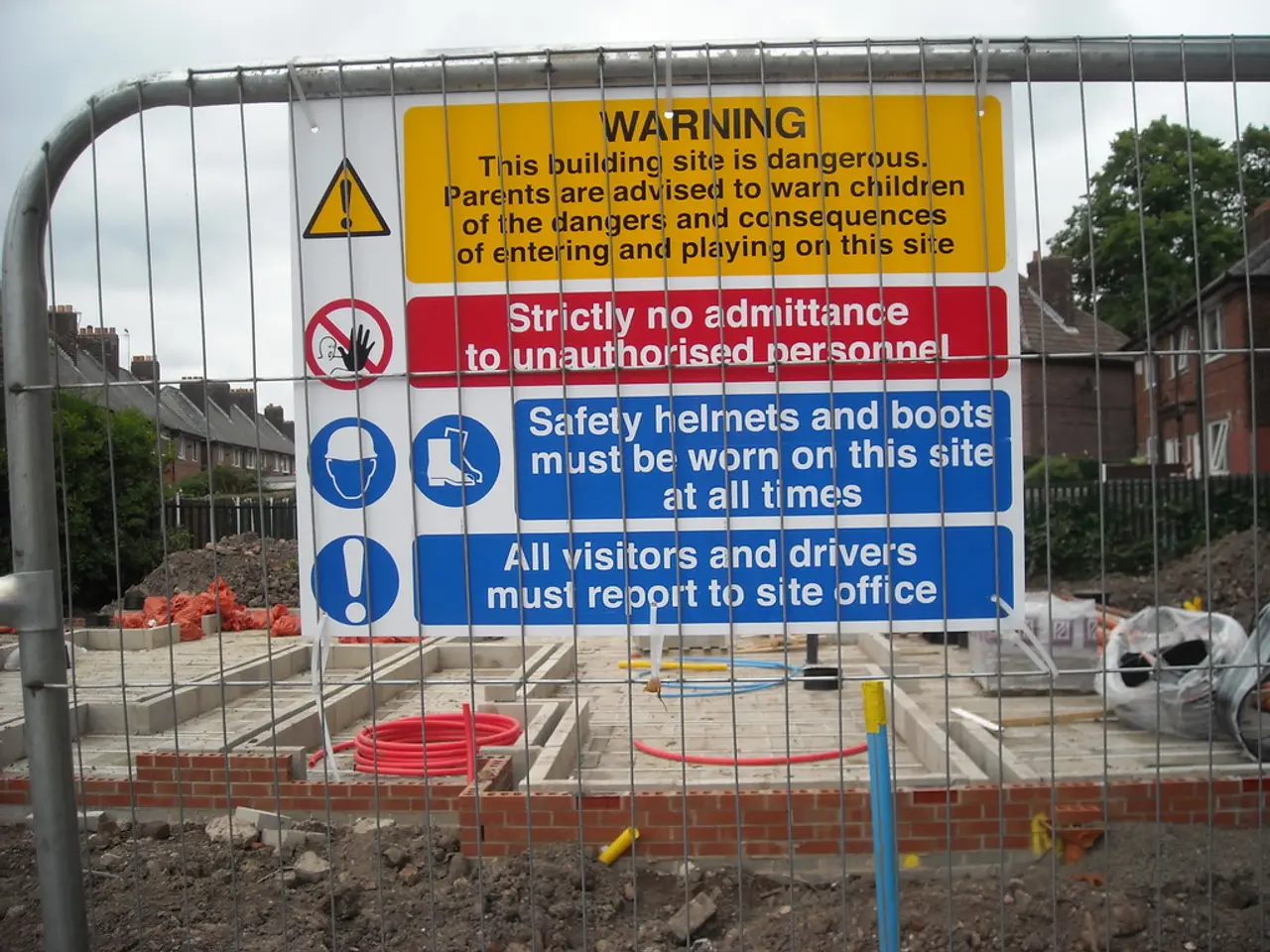UK Safety and Health Regulatory Overview for July 2025
The UK government has announced significant reforms to the Building Safety Regulator (BSR) and the introduction of Personal Emergency Evacuation Plans (PEEPs) for disabled and vulnerable residents. These changes, announced in July 2025, aim to improve building safety oversight, expedite housebuilding, and enhance fire safety for vulnerable individuals.
Building Safety Regulator (BSR) Reforms
The reforms to the BSR are designed to streamline the review process for new build and remediation applications. A fast-track process has been introduced to reduce delays, ease backlogs, and boost confidence in the housing sector, particularly for higher-risk buildings.
Key leadership changes include the appointment of Andy Roe, former Commissioner of the London Fire Brigade, as the non-executive Chair of the BSR board, and Charlie Pugsley as the new CEO to lead operational reforms. The government has also pledged to provide over 100 new staff members to increase capacity and improve review timelines.
The overarching goal is to reduce approval delays and support the delivery of 1.5 million safe, high-quality homes, while ensuring resident safety remains central. These reforms are initial steps towards creating a single construction regulator, a recommendation from the Grenfell Tower Inquiry.
Residential Personal Emergency Evacuation Plans (PEEPs)
From 6 April 2026, new regulations titled the Fire Safety (Residential Evacuation Plans) (England) Regulations 2025 will come into force. These regulations require Responsible Persons (typically building owners or managers) to identify residents who may need assistance evacuating in case of fire. These residents include those with mobility, sensory, or cognitive impairments.
The regulations mandate the creation of Residential Personal Emergency Evacuation Plans (Residential PEEPs), which include a person-centred fire risk assessment and an agreed emergency evacuation statement tailored to the individual needs of relevant residents. These measures aim to enhance fire safety and evacuation support for disabled and vulnerable residents in high-rise residential buildings.
The Ministry of Housing, Communities and Local Government (MHCLG) has published a guidance package regarding Residential PEEPs. The package includes a Residential PEEPs factsheet, an impact assessment, and a toolkit for responsible persons.
In summary, the July 2025 reforms accelerate building safety oversight and housebuilding capacity through expanded BSR resources and leadership, while simultaneously introducing specific fire safety protections for disabled and vulnerable residents via mandatory personalized evacuation plans. These reforms reflect lessons from the Grenfell Tower Inquiry and continue the government’s commitment to safer housing.
[1]: Link to Grenfell Tower Inquiry report [2]: Link to MHCLG guidance on PEEPs [3]: Link to BSR reform announcement [4]: Link to Regulatory Outlook series by our firm [5]: Link to BSR reforms and PEEPs overview
- Recognizing the importance of healthcare, the UK government has expressed its intent to implement various therapeutic solutions and treatments to address chronic diseases and medical conditions as part of their health and wellness policy.
- As the government focuses on improving overall health and fitness, it has also introduced policies aimed at promoting fitness and exercise programs in schools and communities, with a special emphasis on mental health.
- Alongside these health initiatives, the government has introduced policy and legislation to encourage nutritious food choices and combat obesity, aiming to improve the wellbeing of its citizens.
- In the realm of politics and policy-making, the government is working towards developing comprehensive reforms in the areas of medical research, science, and technology to advance the field and improve the quality of life for citizens in the long run.
- The government's initiatives go beyond building safety oversight, as they also keep track of general news and current events, addressing issues such as climate change and its impact on health, as well as providing support for vulnerable communities and mental health services.




